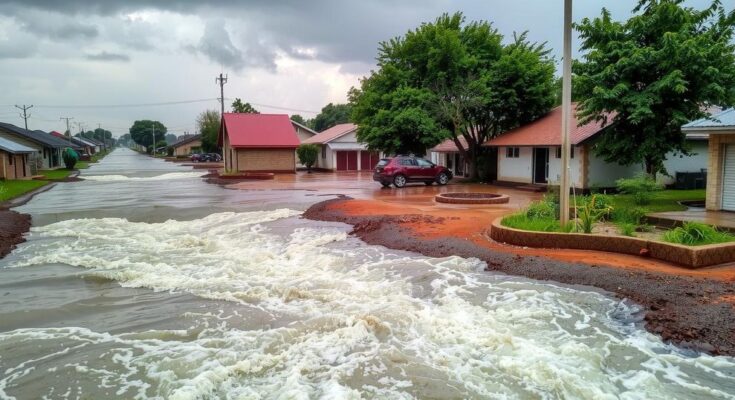Burkina Faso and Togo have collaborated to enhance flood forecasting and disaster risk management through a knowledge-sharing mission to Sweden and Italy. A delegation of specialists learned from advanced meteorological practices and local flood adaptations, aiming to strengthen their national flood warning systems immediately. The initiative is supported by key organizations and coordinated by the WMO under technical assistance programs.
In a concerted initiative geared towards improving flood forecasting and disaster risk management, Burkina Faso and Togo have engaged in collaborative efforts to enhance their operational flood warning systems. This collaboration was exemplified by a recent knowledge-sharing mission to Sweden and Italy, where a delegation of 19 specialists explored advanced meteorological practices and local adaptations to flooding. The insights gained during this exchange are anticipated to significantly bolster the flood warning capabilities of both nations.
The learning journey commenced in Norrkoping, Sweden, where the delegation learned from the Swedish Meteorological and Hydrological Institute (SMHI) about effective meteorological forecast production and dissemination. Additionally, local leaders from Malmo shared insights on flood adaptation strategies, emphasizing the critical need for effective solid waste management to mitigate urban flooding risks.
Following their visit to Sweden, the delegation proceeded to Italy, where they were welcomed by the Civil Protection Agency in Rome. They reviewed hydrometeorological hazard monitoring practices and the identification of operational communication processes among stakeholders involved in flood warning systems. In Genoa, they visited a regional Civil Protection Center, focusing on utilizing local data for enhanced monitoring and forecasting efforts. In Savona, discussions with the CIMA Foundation highlighted the necessity for integrating science and technology within interoperable tools to facilitate efficient monitoring, forecasting, and early action in disaster scenarios.
From their experiences in Italy, the delegation underscored the importance of establishing a coherent national legal and operational framework for flood risk management and early warning systems. This framework must delineate roles and responsibilities across national, regional, and communal levels, reinforcing the significance of inter-institutional communication and coordination.
The learning exchange has instigated commitment from both countries to fortify their flood warning systems and disaster risk reduction infrastructures. The immediate next step entails the development of standardized operating procedures for national flood warning systems, drawing on valuable lessons from their European counterparts. This initiative has received technical support from prominent organizations such as SMHI, AGRHYMET, and CIMA, all working collaboratively to enhance forecasting capabilities in Burkina Faso and Togo.
The coordination of this exchange was facilitated by the World Meteorological Organization (WMO) under its technical assistance programs, specifically aimed at supporting the Hydromet project in Burkina Faso and the CREWS Togo project. The participating institutions involved included various national bodies responsible for meteorology, water resources, civil protection, and emergency response in both Burkina Faso and Togo.
The collaboration between Burkina Faso and Togo centers around the enhancement of flood forecasting and early warning systems, aiming to mitigate risks associated with flooding. The initiative involves a learning exchange that allows specialists from both countries to gain insights from established practices in countries like Sweden and Italy, where effective flood management strategies are in place. By studying operational processes and integrated approaches to disaster risk management, the delegation aims to implement similar methodologies to strengthen their capacities in handling hydrometeorological hazards.
The collaboration and knowledge exchange between Burkina Faso and Togo reflect a strategic approach to improving flood forecasting and disaster risk management. The insights gained from Sweden and Italy are poised to influence the development of robust warning systems and disaster preparedness frameworks within these nations. The commitment to integrating learned best practices signifies a positive step toward enhancing resilience against flooding, thereby protecting vulnerable populations.
Original Source: wmo.int




